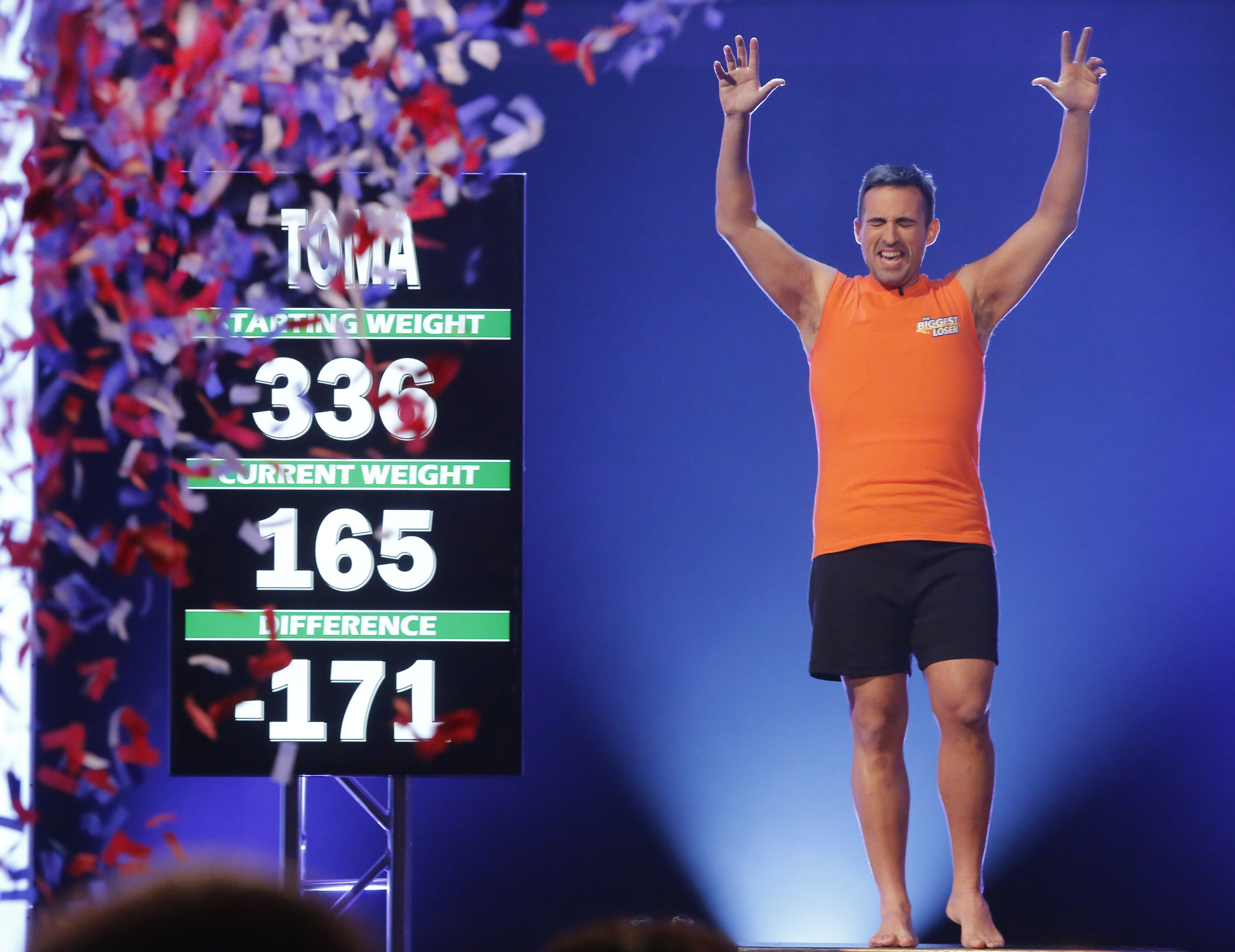Opinion: ‘The Biggest Loser’ Pivoting to Wellness Is a Farce

Credit to Author: Susan Rinkunas| Date: Wed, 15 May 2019 11:34:22 +0000
On Monday, NBC Universal announced that its weight-loss competition show, The Biggest Loser, which last aired in 2016, will be returning to television in 2020 following a “reboot.” What could possibly make a show that degraded overweight people and spun it as inspiration porn relevant and acceptable in this day and age? A “wellness” bent, of course.
In its original iteration, the show challenged its contestants to endure intense physical regimens, glorifying extreme dieting and hours of intense exercise led by barking trainers, which often led to vomiting. Essentially, it was organized fat-shaming—which NBC profited on via advertising and branded products—and it had lasting, toxic effects on both contestants and viewers. (Yes, viewers: studies suggest that watching the show negatively affected people’s attitudes toward exercise and overweight people.)
In addition, doctors and trainers from the show were accused of drugging contestants to help them lose weight, and producers faced criticism after research showed that the drastic weight loss inherent to the show had negative effects on contestants’ metabolisms years later. A show with this much baggage cannot be rebooted after a pivot to wellness.
A press release states that the revamped series will feature people “competing to not only lose weight, but to improve their overall well-being.” The way Chris McCumber, president of USA Network, where the show will air, put it is even more ridiculous:
“We’re re-imagining THE BIGGEST LOSER for today’s audiences, providing a new holistic, 360-degree look at wellness, while retaining the franchise’s competition format and legendary jaw-dropping moments.”
But these concepts are mutually exclusive: You can’t have jaw-dropping moments like the show’s weekly weigh-ins—or frankly, any competition at all—and claim to be about “holistic” wellness. “Wellness” connotes taking care of all aspects of your health, including sleep, stress, nutrition, activity, and happiness—taking nothing to extremes, and definitely not focusing on weight.
The show’s name is still The Biggest Loser, so it stands to reason that the winner will continue to be the person who sheds the most pounds as a percentage of body weight. But wellness is supposed to be more of a feeling than something that can be measured. The idea of a wellness competition is thoroughly absurd. It would require things like tracking people’s sleep duration and quality, blood draws to measure cortisol levels and see who’s the least stressed, and swapping hours-long workouts for meditation sessions where people’s alpha and theta brain waves get measured—and then coming up with some sort of mega metric to determine who’s the most “well.” VICE contacted USA Network by email and phone to find out if any of these will feature on the show and did not hear back in advance of publication.
This reboot perhaps happened for the same reason that the Oprah-fronted diet system Weight Watchers—now known simply as “WW”—pivoted to wellness last fall: The people behind The Biggest Loser have ostensibly recognized that they cannot operate the way they did in the past. In this anti-diet age of body positivity and intuitive eating, the show needed to better disguise the way it indulges viewers with body shaming and perverse fascination.
A weight-loss show with a wellness spin is still a weight-loss show. Consider what Rachelle Hampton wrote in Slate after the WW rebrand:
Influencers touting “clean eating” and “body positivity” do so with the same moralistic chirpiness of SlimFast ads, except now, disdain for fatness is hidden beneath a veneer of caring about “health,” and those attempting to lose weight are forced to couch their personal choice under the veneer of “lifestyle changes.”
Time will tell, but The Biggest Loser version 2.0 appears likely to continue shaming larger-bodied people, with its new focus on wellness landing as nothing more than a concern troll.
Sign up for our newsletter to get the best of VICE delivered to your inbox daily.
This article originally appeared on VICE US.